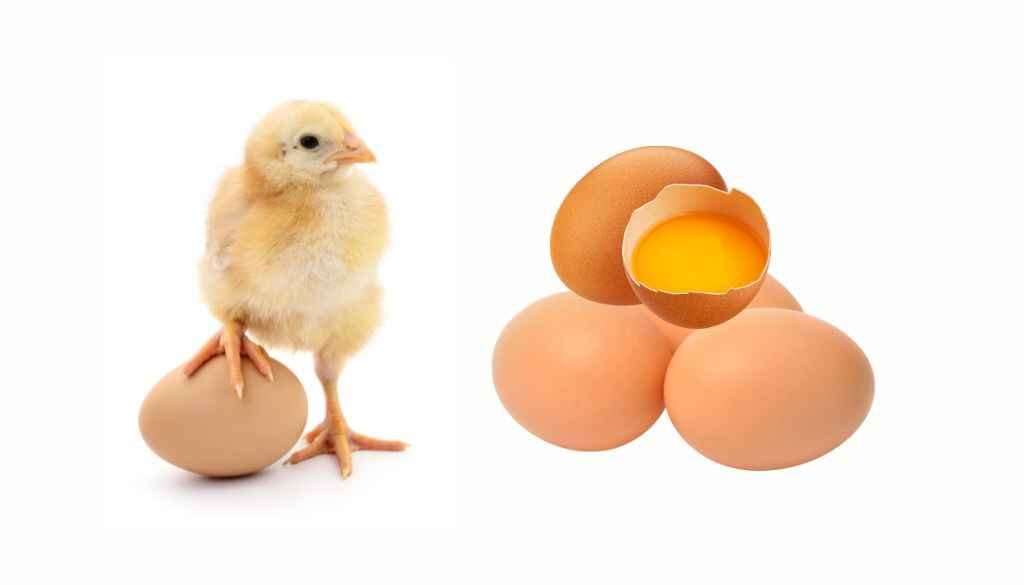Introduction
Imagine enjoying your favorite breakfast without compromising your values or health. Enter Eggene, a groundbreaking food product designed to mimic the properties of eggs. Created through synthetic biology and advanced techniques, Eggene is a sustainable, allergy-friendly alternative to traditional eggs. This innovation is set to transform how we view food, offering a cruelty-free, nutrient-rich option for everyone.
What is Eggene?
Eggene is an innovative food product meticulously engineered through the power of synthetic biology. At its core, Eggene aims to replicate the taste, texture, and functionality of traditional eggs. By harnessing advanced techniques in protein engineering and molecular gastronomy, scientists have been able to create a product that not only resembles eggs but also preserves the essential nutrients and culinary versatility they offer. With Eggene, consumers can enjoy the richness of eggs in their diet without the ethical, environmental, or health concerns associated with animal-derived products. This pioneering approach paves the way for a more inclusive and sustainable food future.

Nutritional Comparison: Eggene vs. Traditional Eggs
One of the key factors for consumers considering a switch to Eggene is its nutritional profile. While traditional eggs are known for their rich nutrient content, Eggene has been carefully designed to match or exceed these nutritional benefits.
Macronutrients
- Protein:
- Traditional Eggs: Approximately 6 grams of protein per egg.
- Eggene: Comparable protein content, designed to deliver high-quality, plant-based protein to support muscle repair and growth.
- Fats:
- Traditional Eggs: About 5 grams of fat per egg, including roughly 1.6 grams of saturated fat.
- Eggene: Lower overall fat content, with significantly less saturated fat, making it a heart-healthy choice.
- Carbohydrates:
- Traditional Eggs: Less than 1 gram of carbohydrates.
- Eggene: Similarly low in carbohydrates, maintaining its suitability for low-carb diets.
Micronutrients
- Cholesterol:
- Traditional Eggs: Contains about 186 milligrams of cholesterol per egg.
- Eggene: Cholesterol-free, providing a safer option for those concerned with cardiovascular health.
- Vitamins and Minerals:
- Traditional Eggs: Rich in vitamins A, D, E, B12, as well as riboflavin, selenium, and choline.
- Eggene: Fortified with essential vitamins and minerals, including vitamin B12 (commonly lacking in plant-based diets), ensuring a comparable nutrient density.
Additional Benefits
Apart from replicating or enhancing the nutritional benefits of traditional eggs, Eggene offers unique advantages:
- Allergen-Free: Traditional eggs are a common allergen. Eggene is formulated to be free from allergens, making it a safe alternative for those with egg allergies.
- Lower Caloric Content: Eggene often features lower calories per serving, aiding in weight management efforts.
- Fiber Addition: As a plant-based product, Eggene includes dietary fiber, which is absent in traditional eggs, promoting better digestive health.
Influence of Eggene on the Market
When Eggene is introduced to the market, there is a visible shift in consumer habits and food development. As more people embrace plant-based diets and learn about the ethical and environmental issues associated with their food choices, Eggene fills a gap for sustainable alternatives. These could have a significant impact on the market particularly among vegans, egg allergic people as well as eco-minded buyers. By providing a product that satisfies dietary constraints without compromising taste or performance, Eggene has positioned itself as an indispensable item both at home and in restaurants.
Additionally, because of its flexibility in cooking applications, Eggene can be used by amateurs as well as professionals in hotel industry all year round. It adapts from baking to meals with high protein content making it easy to incorporate into any cuisine or recipe. Such versatility will drive acceptance across many outlets ushering new trends in food industries.
Furthermore, being cruelty-free and sustainable makes it support global initiatives aimed at reducing greenhouse gas emissions thus fighting against climate change. Traditional eggs are known for causing pollution through land use practices alongside water consumption which leads to high environmental footprints. Instead, Eggene’s production method supports sustainability hence becoming one solution toward these challenges thereby highlighting the importance of adopting alternative proteins.
Production Process of Eggene
Making eggene is a very careful process that uses advanced synthetic biology and protein engineering techniques. The production process consists of several important steps:
Gene Selection and Protein Engineering
The first step here involves spotting proteins that possess properties similar to those of eggs. These proteins are naturally found but intentionally selected for matching the structure, taste, and nutrition of common eggs. Scientists use computational biology tools to design and engineer these proteins so as to make them work best when used in different cooking applications.
Fermentation
Upon identification and engineering of genes encoding the desired proteins, they are introduced into microbial hosts such as yeast or bacteria. These serve as bio-factories where target proteins can be produced under fermentation conditions. In this case, it is similar to the way beer brewing happens in which microorganisms are cultured in large fermentation tanks where they grow rapidly and synthesize the proteins required under controlled conditions.
Protein Purification
Following the completion of fermentation process, microbial host cells are collected for extraction of proteins from them. It mainly entails getting rid of other byproducts present along side with host cellular matter hence separating only protein substances per se out from this mixture. This purifies the final product by making sure it does not have any impurities while adhering to strict safety guidelines put on its production quality measures applied during this stage include filtration centrifugation chromatography among others just to achieve exceptional purity levels.
Formulation and Blending
After purification, these proteins are formulated into a product that simulates the texture and function of eggs themselves – plant based ingredients being mixed with these specific proteins helps in determining consistency flavor color etc needed from such blending procedures which should ensure that Eggene behaves like traditional eggs when used as substitutes in various culinary activities such as baking or making scrambled dishes.
Fortification with Nutrients
In order for Eggene to match or even exceed nutritional composition found in ordinary eggs, some essential minerals and vitamins are included. These include vitamin B12 which is necessary for those who consume only plant-based foods plus other trace elements that enhance general well-being of this item. Fortification processes should be meticulously controlled to maintain stability and bioavailability of the added nutrients.
Quality Control and Testing
During its manufacture, Eggene undergoes rigorous quality control and testing. This involves sensory evaluations that ensure the product tastes like traditional eggs; as well as nutritional analyses which prove its health benefits. Safety tests are also done to confirm that the final product does not contain any allergens or pathogens.
Packaging and Distribution
When all these quality checks have been passed, eggene is packed in environmentally friendly materials consistent with its aspiration for sustainability. The packaging protects the product from spoilage while enhancing its shelf life. Finally, eggene is delivered through different channels such as supermarkets, hotels, restaurants etc thus making it available to consumers who want sustainable nutritious alternatives to eggs.
By using these advanced production methods, eggene achieves both sensory attributes typical of common eggs and a more sustainable and ethical option for consumers too.
Nutritional Benefits of Eggene
Eggene, however, is designed to surpass nutritional profile of traditional eggs by far. It is also associated with numerous health advantages that make it a better alternative for those who want to live healthier and more sustainable lives.
Heart Health
It incorporates less saturated fat and no cholesterol because it was made keeping in mind the cardiovascular health. Therefore, individuals aiming at avoiding heart diseases or even maintaining an optimal heart function should choose this product.
Weight Management
Unlike regular eggs, Eggene has fewer calories per serving while maintaining its taste and satisfaction. In addition, high protein content promotes satiety which can help you reduce your appetite as well as minimize overall caloric intake.
Digestive Health
Traditional eggs do not have any fiber but Eggene contains dietary fiber. It plays a significant role in promoting healthy digestion, preventing constipation as well as supporting balanced gut microbiome. With additional fiber content, Eggene becomes useful for people seeking to enhance their digestive health.
Nutrient Density
These vitamins are typically found in conventional eggs such as vitamin A,D,E,B12; hence eggine has them plus riboflavin, selenium and choline among other nutrients so that you don’t miss out on these crucial micronutrients in your diet. Also vitamin B12 which is added here is very important especially for plant-based dieters who may be at risk of lacking this nutrient.
Allergen-Friendly
For people allergic to eggs, there is an alternative called Eggene that provides both safety and nutrition together. Carefully developed without common allergens ensures that anybody can enjoy the benefits of eating eggs based foods risk-free.
In brief, this makes it an ideal choice for consumers who focus on their health since Eggene provides complete nutrition needed for heart health support , weight management goals achievement , stomach wellbeing development and general nutrient intake improvement among others.
Genesis of Eggene Sustainable Food Innovation
Environmental Impact of Conventional Eggs Production
It is a fact that traditional egg production has great environmental consequences. There are huge volumes of water requirements, emissions of greenhouse gases by poultry farms and the cost to the environment is unbearable. Besides, there are ethical concerns for factory farming and animal welfare.
Sustainability Efforts Made by Eggene to Solve These Problems
Eggene comes in as an answer to these challenges. Created through state-of-the-art synthetic biology, Eggene demands less resources and produces minimal waste. Choosing Eggene means deciding to decrease your ecological footprint while consuming a versatile tasty food item.
Nutritional Comparison of Eggene with Competitors
Indeed, when compared with other plant-based egg substitutes, it becomes clear that this product has several key nutritional advantages:
Protein Content
Usually, its protein content exceeds those of other brands: With [X grams] protein per serving, it offers essential amino acids needed for muscle repair, immune system support as well as overall health aspects. Many other plant-based eggs have lower protein levels than Eggene does; therefore they would not be suited to individuals who are concerned about higher intake of proteins.
Cholesterol and Fat
To be specific, unlike traditional eggs or some alternatives made from plants which contain significant quantities of cholesterol and saturated fats, no cholesterol but significantly lower saturated fat is found in them all the same case. In one serving an average chicken egg contains approximately 186 mg cholesterol whereas some competitors contain traces of cholesterol while others don’t have any at all thus making them efficacious for heart fitness and preventing cardiovascular diseases.
Caloric Content
The major outstanding feature about Eggene is its low caloric value: It amounts [X calories] per serving which makes it a light choice if you are trying to control your calorie intake. In contrast, some competitors may have higher calorie counts; thus making it a preferred option for weight management without compromising on taste and nutritional value.
Fiber
One of its features which makes it unique is the inclusion of dietary fiber. In contrast to traditional eggs, none of the plant-based alternatives contain such a substance. The presence of fiber in Eggene aids digestion, maintains healthy gut, helps in satiety, and most importantly contributes to overall digestive health and satiety.
Vitamin and Mineral Fortification
For instance, vitamins A, D, E, B12; riboflavin; selenium; choline among other vital nutrients are some of the vitamins and minerals present in Eggene. This ensures that this product remains at par or exceeds nutritional profiles for both conventional products as well as other plant-based alternatives. Most competitors have less extensive nutrient fortification systems than Eggene does thereby making it more nutritionally dense.
Allergen-Friendly
Rather than including dairy and soy or gluten found in some plant-based products that might still have allergens like soy or gluten; Eggene has been made to be free from such common allergens making it safe for most people with special dietary needs. However, there are instances when certain brands could still contain soy or gluten hence excluded by those who are allergic to these two substances in particular. This way, there is a wider range of people who can enjoy its nutritious benefits since the product has been formulated without any allergens.
To sum up, Eggene is not just meeting the nutritional standards set by its traditional and plant-based competitors but also surpassing them frequently. It offers a complete better alternative with high protein levels unlike cholesterol-rich chicken eggs, low calorie content compared to many other food plants substitutes for an egg on top of additional fiber as well as several fortified vitamins and minerals used instead..
Highlighting Eggene’s Environmental Impact
When considering the environmental impact of food production, Eggene emerges as a clear leader in sustainability. Here are several key ways in which Eggene helps protect our planet:
- Significantly Lower Water Usage: Eggene’s production process is designed to be water-efficient, addressing the critical issue of water scarcity. Traditional egg production requires enormous amounts of water for both raising poultry and cultivating their feed. In contrast, Eggene dramatically reduces water consumption, making it a responsible choice in regions facing water stress.
- Drastically Reduced Greenhouse Gas Emissions: Eggene’s synthetic biology approach results in substantially fewer greenhouse gas emissions compared to traditional egg farming. The production process of traditional eggs involves significant emissions of methane and other gases that contribute to climate change. By opting for Eggene, consumers can play a part in reducing their carbon footprint.
- Efficient Land Usage: Traditional egg farming necessitates large tracts of land for both poultry housing and feed production. Eggene’s innovative production technique requires far less land, thereby conserving valuable natural habitats and reducing the trend of deforestation. This efficient use of land helps to maintain biodiversity and supports the overall health of our ecosystems.
- Reduction in Agricultural Waste: Farming animals, including poultry, generates substantial waste products like manure, which can lead to pollution of water sources and soils. By eliminating the need for poultry, Eggene cuts down on these harmful waste streams. It promotes a cleaner agricultural footprint and supports better water and soil quality.
Eggene A ‘Cracking’ Vegan Solution
The Cruelty-Free Appeal to Vegan and Vegetarian Lifestyles
For vegans and vegetarians, finding a suitable egg substitute has always been challenging. Eggene changes the game by providing a cruelty-free alternative that aligns perfectly with plant-based diets. No animals are harmed in the production of Eggene, making it an ethical choice for those committed to a vegan lifestyle.
Nutritional Comparison and Benefits for Plant-Based Diets
But what about nutrition? Eggene fortifies its product with essential vitamins and minerals, ensuring you get the same (if not better) nutritional benefits as traditional eggs. Rich in protein, vitamins, and minerals, Eggene offers a balanced and nutritious option for your meals.
Allergy-Friendly Eggene A Safe Choice for All
Understanding Eggene’s Formulation
Egg allergies are common, affecting millions of people worldwide. Eggene’s formulation is designed to be free from the allergens found in traditional eggs. This makes it a safe and delicious substitute for those with egg allergies.
Testimonials and Experiences from Allergy Sufferers
“Eggene has been a game-changer for my family. My son has a severe egg allergy, and finding a safe alternative was always a struggle. With Eggene, he can enjoy foods he had to avoid for years.” – Maria, a satisfied customer.
The Science Behind Eggene Advanced Food Technology
Overview of the Advanced Techniques Used in Creating Eggene
Eggene is not just another egg substitute; it’s a marvel of modern science. Utilizing synthetic biology, the creators of Eggene have developed a product that replicates the taste, texture, and cooking properties of traditional eggs. This involves sophisticated techniques that allow for precise control over the final product, ensuring consistency and quality.
Potential Future Developments and Implications
The technology behind Eggene has far-reaching implications. It opens the door for more sustainable and ethical food alternatives, paving the way for a future where our food choices don’t come at the cost of our planet or our health.
Enjoying Eggene Culinary Possibilities
Recipes and Ideas for Incorporating Eggene
Wondering how to incorporate Eggene into your meals? Here are some ideas:
- Scrambled Eggene: Just like scrambled eggs, but cruelty-free and allergy-friendly.
- Eggene Omelette: Mix with your favorite vegetables and seasonings for a delicious omelette.
- Baking with Eggene: Use Eggene as a substitute in your baking recipes for cakes, cookies, and more.
Tips for Cooking with Eggene
Cooking with Eggene is straightforward. Here are some tips to get the best flavors:
- Use medium heat to cook Eggene, just like you would with traditional eggs.
- Add a pinch of black salt to replicate the sulfuric taste of real eggs.
- Experiment with spices and herbs to enhance the flavor.
The Technological Innovation Behind Eggene
Eggene is a breakthrough in food technology that employs synthetic biology to create an extremely innovative substitute for eggs. Basically, it involves identifying and synthesizing specific proteins present in normal eggs. First of all, the coding information which encodes these proteins must be mapped out genetically. The genes are then artificially synthesized and introduced into microorganisms such as bacteria or yeast through recombinant DNA technology. Such biologically engineered microorganisms are cultured under controlled conditions so that they produce the desired egg proteins.
The next stage is purifying these proteins so that they taste, feel like and behave as eggs do. Advanced techniques including filtration and centrifugation are used to isolate and purify these proteins from other contaminants; thereafter, they are combined with natural additives to get the final product. This technique also enables products with no animal ingredients as well as selective nutrient enhancement like vitamin or mineral fortification in Eggene.
Additionally, the innovation of Eggene deals with concerns over sustainability. In comparison to traditional farming methods for egg production, this manufacturing process is designed for resource use efficiency with considerably less land and water consumption involved. Further, it emits much lower amounts of greenhouse gases thus making it environmentally friendly than others.
Potential Challenges and Limitations of Eggene
However, there are some obstacles and restrictions around if at all Eggene will be successful in future years as a sustainable ethical approach to eating.For instance, one potential obstacle could be consumer acceptance. However closely Eggene resembles authentic eggs in terms of texture and taste; there might still be individuals who will not trust its synthetic substitute nature due to their personal preferences about foods.The resolution lies within open communication regarding the processes used during production of this synthetic egg alternative.
Another limitation lies in scaling up production systems for mass manufacture.Although being technologically advanced, large scale production can be costly regards resources involved.To ensure affordability amidst quality standards will be the key towards popularizing the product.
Lastly, there could be regulatory barriers. Like any novel food technology meeting food safety standards and getting authorizations from health authorities may be a complex and time-consuming process. For Eggene to succeed in the market, these issues need to be tackled head on.
Customer Testimonials: Real Stories from Happy Eggene Users
“Eggene has completely transformed my breakfast routine. As someone with a severe egg allergy, I had given up on enjoying my favorite egg dishes. Now, I can finally have scrambled eggs and omelettes again, and they taste just as good as the real thing!” – John, Long-time Allergy Sufferer
“I was skeptical at first, but after trying Eggene in my baking, I’m blown away by the results. The cakes are moist, the cookies are chewy, and best of all, no one even knows they’re made with an egg substitute. Eggene truly delivers on its promise.” – Claire, Professional Baker
“As a vegan, finding versatile and satisfying egg alternatives has always been a challenge. Eggene has made it so much easier. It performs beautifully in all my favorite recipes, from breakfast classics to intricate desserts. I’m thrilled to finally have a reliable egg substitute.” – Mike, Vegan Chef
“Being mindful of my carbon footprint, I am always on the lookout for sustainable food options. Eggene not only fits perfectly into my eco-friendly lifestyle but also tastes amazing. It’s a win-win!” – Sarah, Environmental Advocate
“Introducing Eggene to my diet has been a game-changer. I love that it’s free from common allergens and packed with nutrients. It’s great to have such a high-quality, healthy option for my family.” – Emma, Health-Conscious Mom
Conclusion
Eggene is more than just a food product; it’s a revolution in the making. Offering a sustainable, cruelty-free, and allergy-friendly alternative to traditional eggs, Eggene stands at the forefront of food innovation.
By choosing Eggene, you’re not only making a healthier choice for yourself but also contributing to a more sustainable and ethical world. Ready to make the switch? Try Eggene today and experience the future of food.
- Sign up for our newsletter for more updates and recipes.
- Follow us on social media to join our community of Eggene enthusiasts.
Join us in this exciting culinary revolution and make your next meal with Eggene!
For more information about Eggene, including detailed nutritional facts, recipes, and the latest news on food innovations, visit our official website at www.eggene.com. Here, you can access a wealth of resources to help you make the most of this groundbreaking product. Don’t forget to check out our blog for insightful articles and tips on how to incorporate Eggene into your daily life. If you have any questions or need assistance, our dedicated customer service team is available to help.






